CONTENTS
40 Best Travel Tips For Beginners: Everything You Need To Get Ready
As passionate travellers, we must constantly be on our way to discovering new journeys and unlocking fresh experiences. And while you're travelling, having the best travel tips in mind is important, as they'll allow you to prepare for any situation.
Speaking of which, our following list consists of all essential travel tips and will help you prepare for any unforeseen circumstances when arriving at your new destinations. Take a look at each of them, and make sure to take notes.
1. Only Bring What You Need
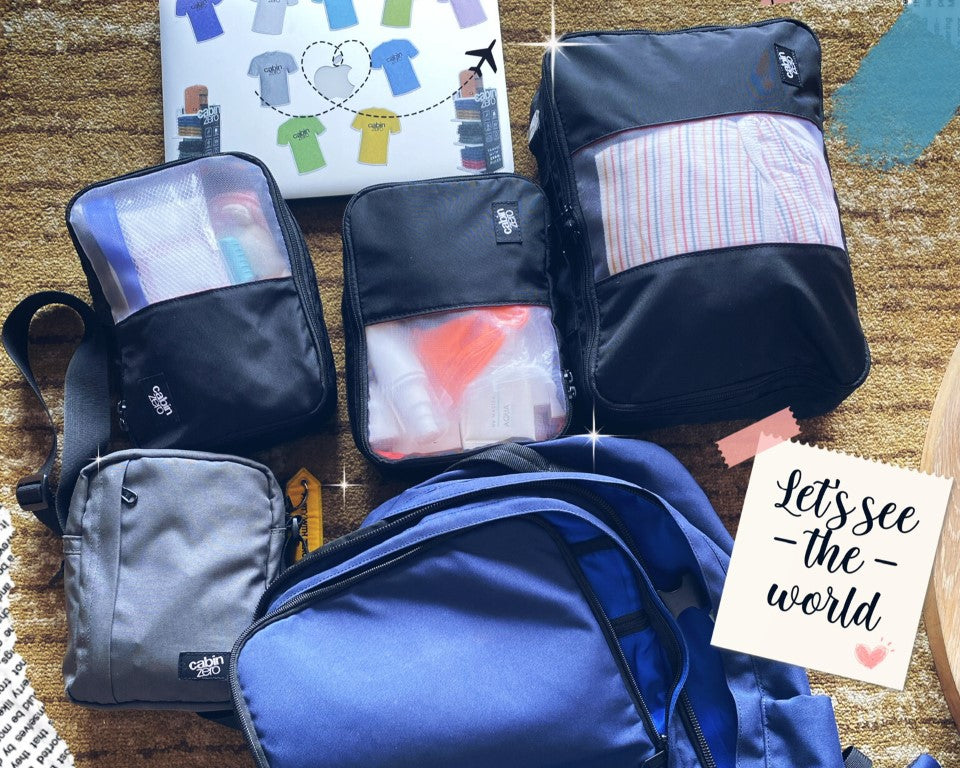
The first rule for packing is to limit your items to only the essentials. Never cram all your stuff into the suitcases, only because you might need them. Bring only the things that aren't replaceable where you're headed, and skip all the items with local alternatives.
From our experiences, it's best to have a packing list so you don't overpack and never forget anything. Start with your important papers and personal identifications. Put them all in a zip bag and store them inside the safe compartment of your backpack.
Once you're done, it's time to check on your electronic devices. In most cases, you only need space for the phone and its charger. Your laptop is optional, especially if you don't plan to use it often during your vacation.
2. Learn To Pack Clothes Efficiently
Your clothes and other accessories are much needed to show off your styles and capture amazing pics during the trips. But only take those that you'll most likely wear during the experience. And make sure to follow our guidelines to pack them like a pro:
- You should always try to roll your clothes to optimise the space inside your backpack.
- Remember to put heavy accessories and clothes at the bottom of your suitcase or bag to avoid any disturbances during transportation.
- It's highly recommended that you use packing cubes to help organise the items inside your suitcase. Thus, allowing you to make the most of the available spaces.
3. Put Your Liquids Inside Airtight Bags
Since you'll be keeping them inside your bag, together with clothes and other electronics, we advise you to stash any of them inside liquid bags to avoid spilling. In most cases, a simple plastic zip-top bag would be enough. And while you're at it, check the airline regulations for certain types of prohibited liquids before putting them inside.
A great way to avoid any airport hassles when going through the checkpoints is to use TSA-approved bags. These are specifically designed bags following the Transportation Security Administration (TSA) guidelines.
4. A Daypack For Exploration
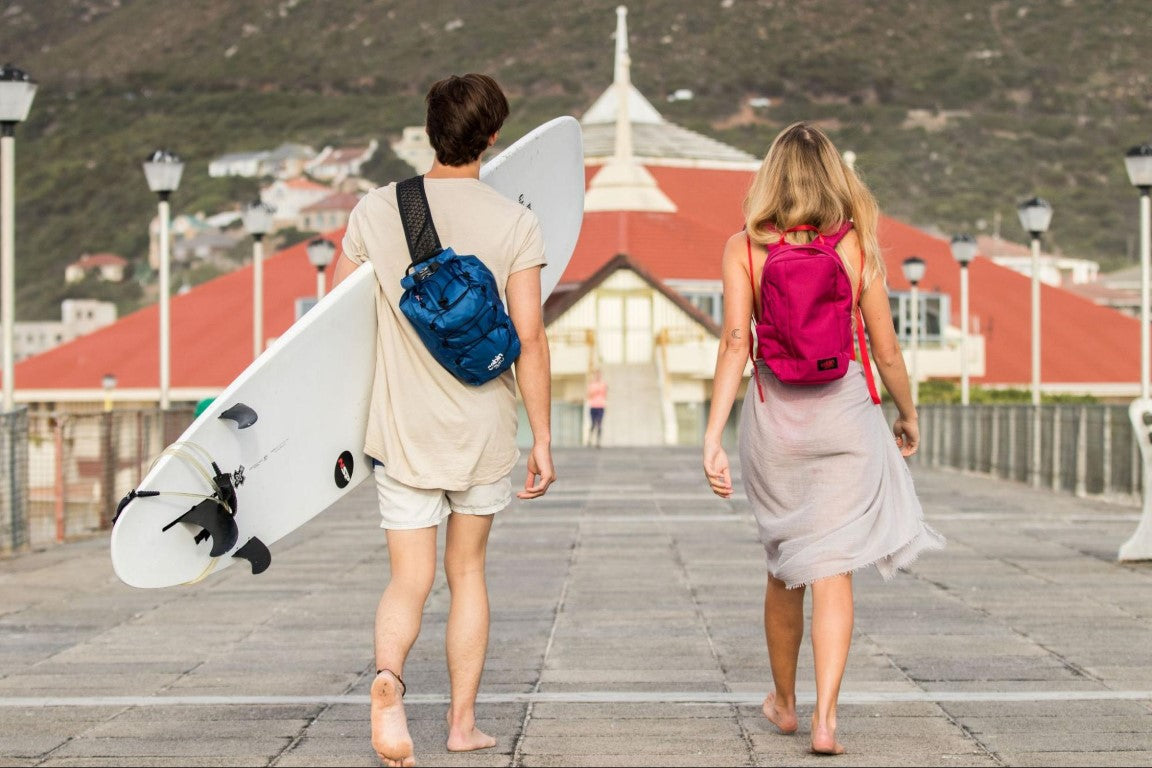
You don't have to bring your entire luggage when exploring a new travel destination. Instead, learn to prepare a small quality daypack for better mobility and convenience. This will allow you to relieve a lot of weight on your backpack, especially if you're always on the move.
Only take important items like your water bottle, sunscreen, snacks, charger, ID, and a little bit of cash. Depending on the day and your travel preferences, you can pack your stuff differently each day.
Remember, you don’t need much to explore a new place, just be open-minded and embrace the complexity.
5. Research, Research, Research
Before travelling to a new place, it’s important to do some research on how to travel. With travelling, knowing what to expect before you board that plane is certainly a must.
Start by asking questions like:
- What will the climate/weather be like? – so you can bring the right pieces of clothing and gear for the next trip. Also, check the local weather forecasts to learn the exact patterns for the upcoming days.
- Do the locals speak your language? – Fortunately, English is a secondary language in many countries. But if you end up in countries that don’t speak your language, then you will need your translation tools (e.g. Google Translate) available.
- What are the means of transportation? – most of the time, we advise you to travel on foot if possible. It will allow you to have true experiences as a local. And to move between places of great distances, rental vehicles and public transportation are what you need. Make sure to have some research done and choose the best options, depending on where you're going.
These are just a few initial questions that you can ask yourself. The more you research your international travel destinations, the more well-prepared you will be.
Fortunately, food and travel information are as plentiful as blackberries these days. Here are some for you to get started:
- Your country travel advisories such as those of the U.S. and U.K.
- Travel blogs (like us!)
- Youtube
- Documenties and movies
- Podcasts
- Travel magazines and guides
- Travel forums such as TripAdvisor
- Social media like IG or Tik Tok
- And finally, your friends and family.
6. Always Stay Flexible
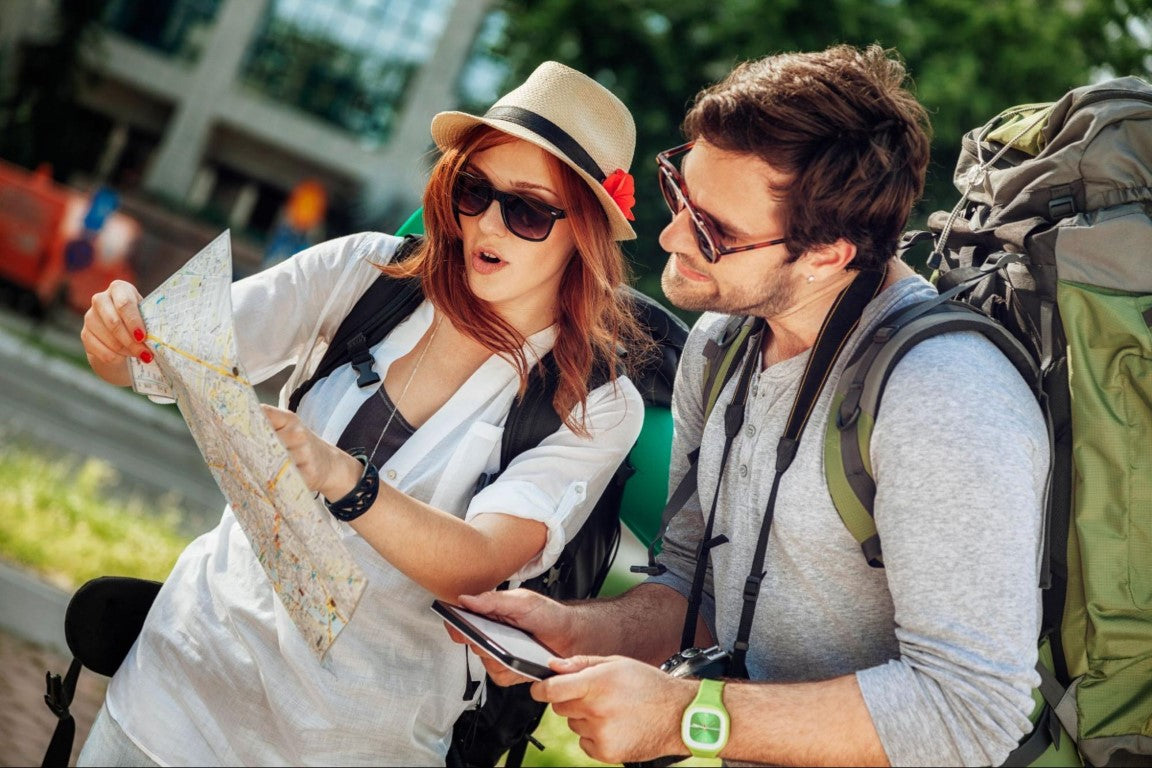
Expect the unexpected, and you’re golden! Photo by Dangubic - stock.adobe.com
No matter how well you prepare for your trips, unexpected things can always happen at the last minute. So, as experienced travellers, we highly recommend you keep an open mind and stay flexible when dealing with anything. A change of plane doesn’t necessarily a bad thing.
Adaptability is what all travellers should have. And sometimes, the best experiences come from situations that are least expected. Don't be afraid to change your plans as long as you know what you're getting into. This mindset will be your international entry when travelling to a foreign country.
7. Eat And Drink Like A Local
One of the best experiences that you can have when travelling is trying local cuisine. And the best places to get these indigenous dishes are the local markets and restaurants. Look for the most recommended places on the Internet and start exploring them whenever you can.
It's even better to find a guide who can help you navigate the streets and get to places where they sell real, local specialities. A telling sight is when a place is full of tourists instead of the locals.
And when eating in a foreign country, our top travel tips would be to consider eating at trusted facilities and always watch how they cook it (do they wash their hand? Is there any ingredients that you are allergic to?).
When in doubt, drink only filtered or bottled water. Some even go so far as to brushing their teeth with water from their trusted source only. This will improve your food and drink safety while travelling.
8. Make New Friends
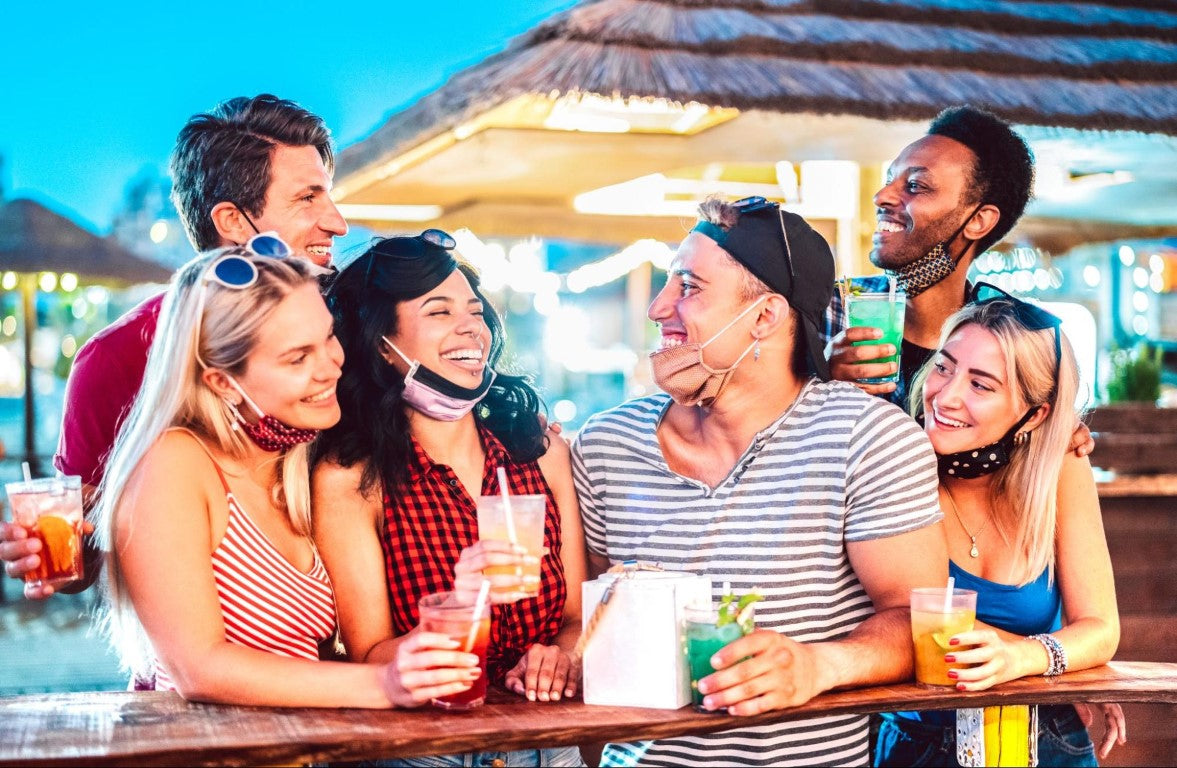
Your trips are all about meeting new people, exposing yourself to new cultures, having new experiences, and making new friends. So don’t hesitate to start a conversation with the locals when you’re travelling.
In most countries that we've been to, the locals are always hospitable when interacting with visitors. And from our part, they were most helpful and welcoming, often doing more than required to help us with directions, recommendations, and advice about travelling.
Many of our foreign friends are from our previous trips visiting their countries. Sometimes, all it takes is a spark of curiosity to ignite a life-long friendship. And you'll never know how exciting the people you meet every day are until you can sit down and spend some time with them.
9. Try To Learn The Local Language
Most of the time, the best way to approach a foreigner and make new friends is to speak their language. Now, you don't have to be perfect and fluent when engaging with locals. Just make sure that you've tried learning a few basic phrases and be most open to speaking to others.
Sometimes, a simple “hello”, “please”, and “thank you” in the local language can get you really far when communicating with others. And at the same time, you can often enjoy learning new words and phrases from your new local friends, which will make the entire experience a lot more enjoyable.
Apps like Duolingo, Rosetta Stone, and Babbel can be helpful. A pocket-sized phrasebook or app of the same function is another handy reference you may want to have.
10. Explore And Embrace The Local Customs

When travelling, it’s important to understand that different countries will have certain cultural differences. So, as travellers, you need to be open-minded and well-adapted to the local customs. By understanding the different practices, you can learn about certain people and their society.
Start by exploring the common traditions of the locals before you travel, so you would know what to expect. And when you're staying in their countries, always be respectful and try to embrace the complexity as much as you can.
For example, in Japan, you must remove your shoes before entering any homes or temples. It’s considered rude when eating with your left hand in India. And in some Middle Eastern countries, it’s customary to haggle when shopping, especially at the local markets.
11. Take Notes And Write Journals While Travelling
One of our useful tips for travelling is to take notes and write journals most frequently. Always have a small notepad ready at hand, so you can instantly jot down important memos.
Learn to write a travel journal, if possible, as it would help to capture your thoughts and emotions through powerful words. And only by sitting down and start writing could you be able to think clearly and make more sense of your experiences.
If you find the traditional papers and pens inconvenient, feel free to take notes and journals using proprietary apps on your mobile devices.
12. Double-Check Your Paperwork And Travel Insurance
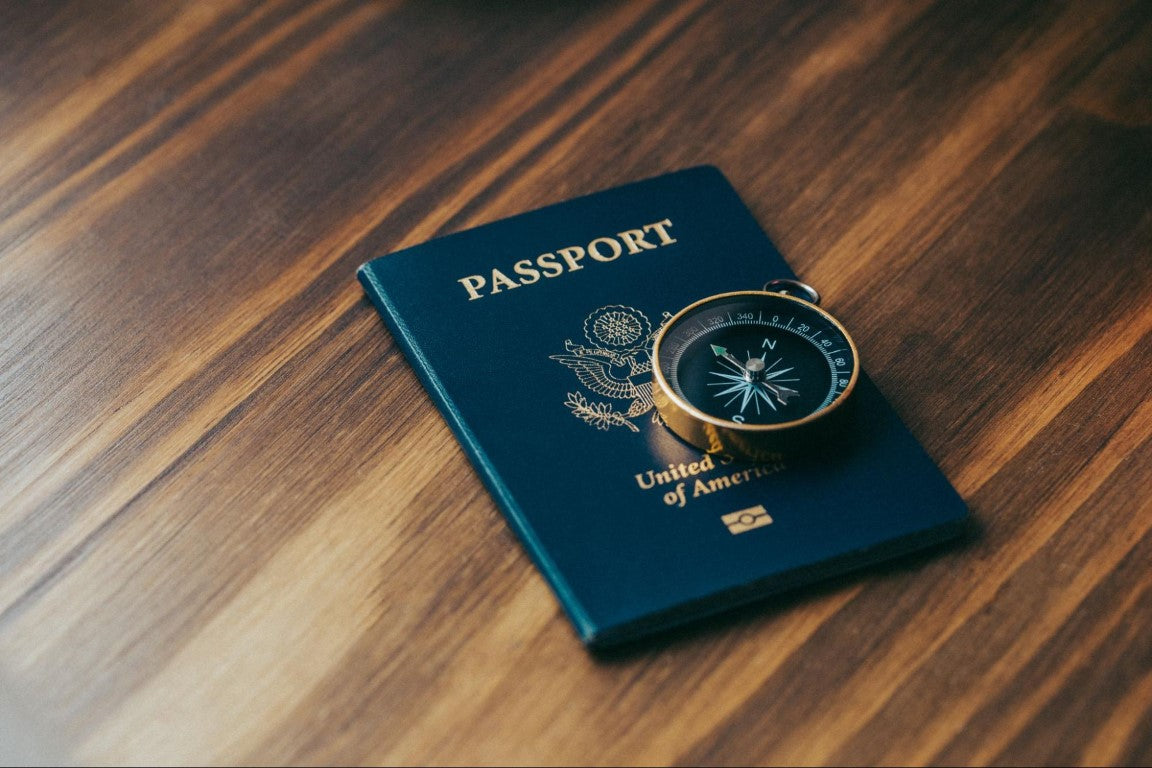
Your personal identification will be extremely important when travelling from one place to another, especially internationally.
To start with, you'll need to have your passport ready, with its validity well within six months or more. This is because certain countries won't permit your entry if your passport is close to the expiration date. So, make sure to extend your passport if you plan to travel for a long time.
And at the same time, it’s highly recommended that you make copies of your passport and important documents, in case you lose your original. Keep one with you and one at home in a safe hand.
And not just your passport. All your other personal identification documents need to have their copies prepared. These will come in handy if you ever need proof of your British citizenship when travelling to a foreign country.
In addition, we suggest our readers apply for and bring a copy of their travel insurance. Nowadays, most companies will support their clients with a mobile app, which stores all their insurance details and can be used whenever needed. So, it won't take much time and can protect you in the long run.
13. Memorise All The Emergency Phone Numbers
As a new traveller to a foreign country, there will be many incidents that you aren't prepared for. As a top tip for travelling, we highly recommend you take notes of all the emergency numbers.
And it would be even better if you can memorise certain local emergency hotlines. They'll come in handy if you ever require protection and assistance. When in an emergency, dial the following numbers (they could save your life):
- US: 911
- UK: 999 or 55∗
- Europe: 112
- Australia: 000
- New Zealand: 111.
∗Note: You should dial this number when you are in a dangerous situation where you can’t speak or even cough or tap the phone. Learn more about it here.
14. Never Forget These Useful Clothing Accessories
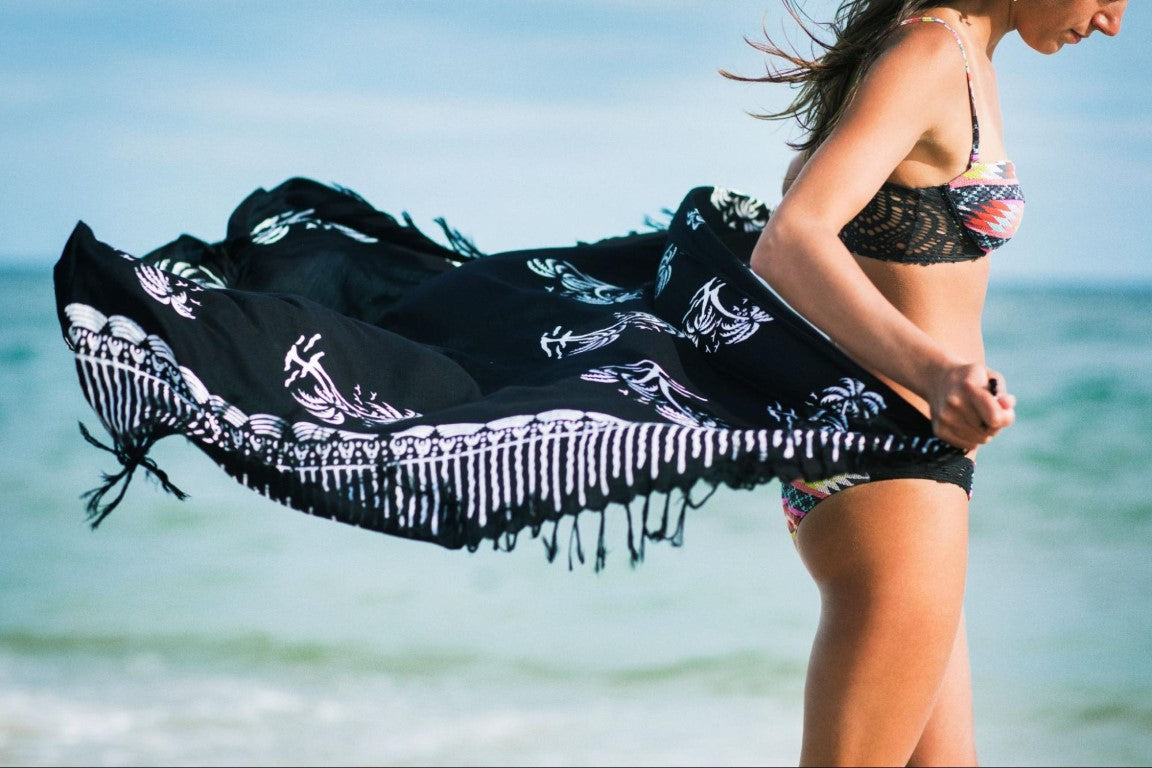
When packing your clothes, you can put away certain unnecessary dresses you won't use. Instead, try to make room for these useful pieces of clothing accessories:
- A sarong – you'll be surprised by the many uses that a sarong can have. Thanks to its many utilities, from a simple towel and beach cover-up to your emergency curtain, your sarong can be most helpful in many cases.
- A hat – this is most recommended no matter where you're travelling to. Regardless of the temperatures, you must protect your head from both heat and cold. Plus, a good hat will make a great fashion accessory.
- A swimsuit – it’s best to always keep a small swimsuit with you, so you can immediately jump into the beautiful pools, ponds, waterfalls, and beaches. Plus, it won’t take much space inside your backpack, so there is no reason to say no.
- A raincoat or umbrella – you'll never know when it'll start to rain, so having a raincoat in the bag can be helpful. And if you want more utilities, then an umbrella can aid you in both sunny and rainy weather.
- Comfortable Socks - They are the unsung heroes of every cosy travel memories. A good pair of compression socks can do wonders when you are on a long flight.
15. Keep Your Devices Juiced Up
One of the few useful tips for travellers is to always have their charging accessories ready at hand. With our electronic devices always by our side, we'll need to make sure they're properly powered during the entire trip. And for travellers, these are the best charging equipment, together with your proprietary charger:
- A power bank – this is definitely the must-have item on your charging starter pack. A power bank of adequate capacity can recharge most of your devices in one full charge. And with fast-charging now supported on most portable chargers, you can have much better uses for it on the go.
- A travel adapter – when moving between countries, you’ll come across different types of power outlets with varied currents. So, unless you have a universal travel adapter, keeping your electronic devices properly charged is nearly impossible. Always look for those from trusted brands that have all-in-one charging capabilities.
16. Use A Money Belt To Keep Your Essentials
If you plan on moving constantly and travelling lightly, then having a money belt ready can be quite useful. Similar to a hip pack, you can simply tuck in your phone, passport, personal identification, money, keys, and other important items to keep them safe.
Feel free to use it as your regular belt while carrying your valuables. Having immediate access to the items is always a good thing. This is one of the best international travel tips, especially when arriving in a 3rd world countries.
17. Pack Lightly
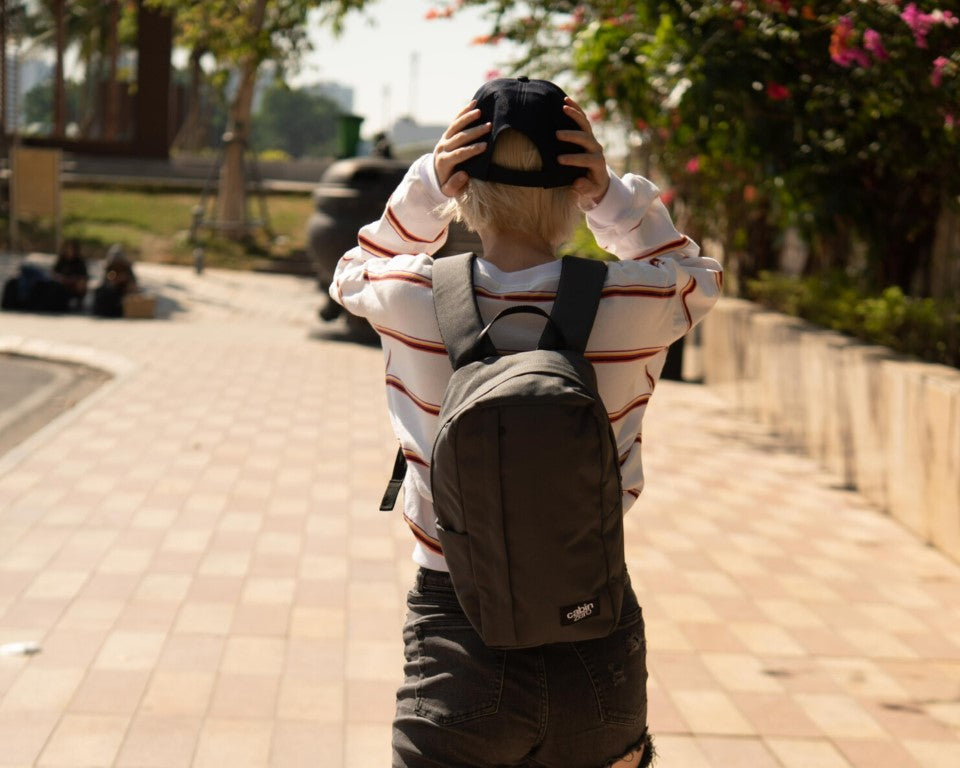
One of the most useful travel tips for beginner is to pack only what the need. The idea of travelling with only one bag, where you can keep all your important stuff and carry it on the go, is just so freeing and irresistible.
Just make sure to consider your personal preferences to choose the best backpack for your certain needs. For the minimalist, a small backpack to store your water bottle, snacks, laptop, and the camera is enough to get you going.
But for others who might want to prepare a few more things in advance, you will need your backpack to be a little bit bigger and have better storage. Still, it should be well within normal weights and sizes for better day-to-day carrying.
18. Bring Your Portable Speaker
If you love to party and enjoy the moments, your portable speaker can immediately change your mood. Use it to play your favourite pieces of music on the go and with much better conveniences than wired devices.
Plus, with portable speakers, you can enjoy sharing your love for music with friends and others. Have the most fun with your instant sing-along sessions whenever you want.
Bring it with you while you're travelling the mountains and seas. Listen to the perfect songs while you admire the beauties of nature.
19. Pack A Small Torch
After an entire day of constant use, your phone will need to be recharged, and your extra power bank has enough power to keep it going until you get back to the hotel.
Hence, a small torch will come in handy if you wish to navigate in the dark. Plus, it’s also useful if you want something that’s more powerful than your phone flashlight.
20. Carry A Reusable Water Bottle
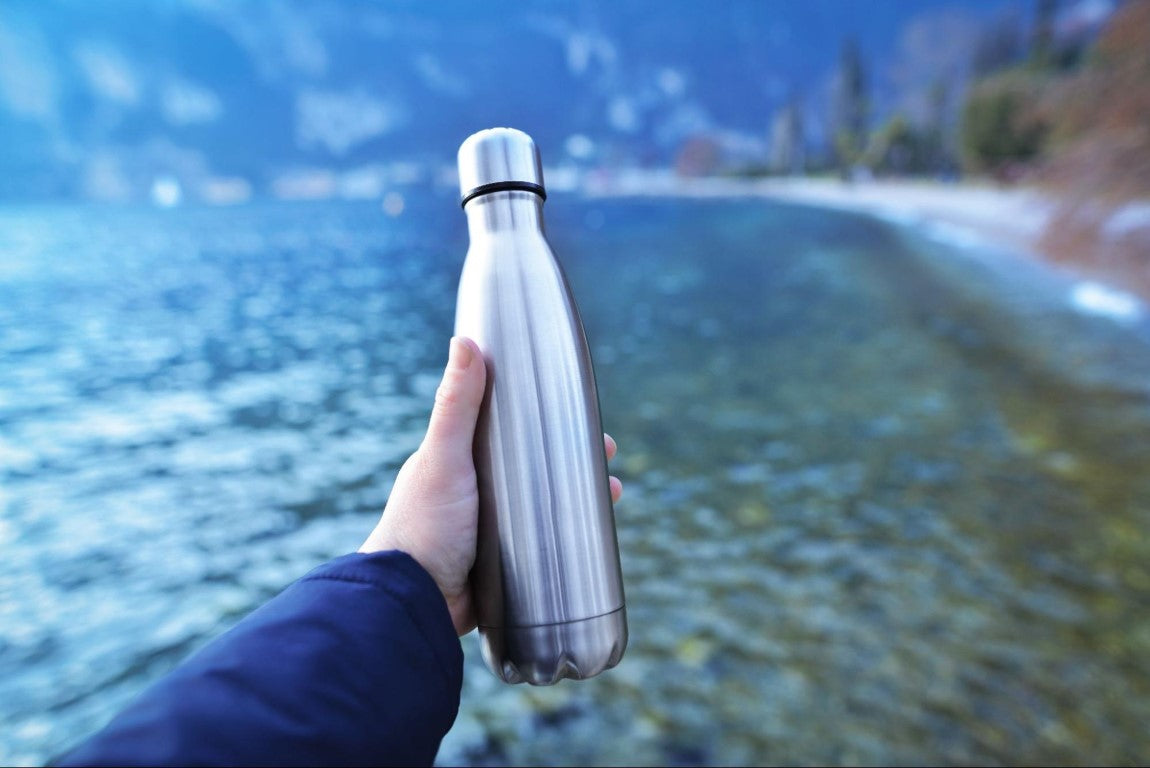
Even if you aren't an environmentalist, having a single-use water bottle isn't something to be proud of. As a result, we always recommend our readers reuse their plastic bottles whenever they can.
So, when you’re travelling, keeping your plastic bottles and refilling them in public bottle-filling stations is always a good idea. Only recycle your bottle when it's damaged and can't be reused.
21. Bring Travel Detergent Strips And Stain Remover Pens
If you wish to do your laundry on the go and quickly remove stains from your clothes, then having these items will certainly help. Travel detergent strips are lightweight and easy to store inside your backpacks of different sizes.
And the powerful stain remover pens can easily eliminate any stains while remaining compact enough for your purse. If you don’t have the budget for them, a simple piece of soap is also fine.
22. Bring A Travel Pillow
Having a travel pillow is essential to save yourself a sore neck and back from sleeping at the airport. Instead of sleeping with your bare head, you can provide better support and cushion with this wonderful accessory for flying and layovers.
Depending on your sleeping preferences, there will be specific products that suit your style. So always consider the options, and make sure to pick one that’s lightweight enough for everyday carrying.
23. Have A Luggage Scale
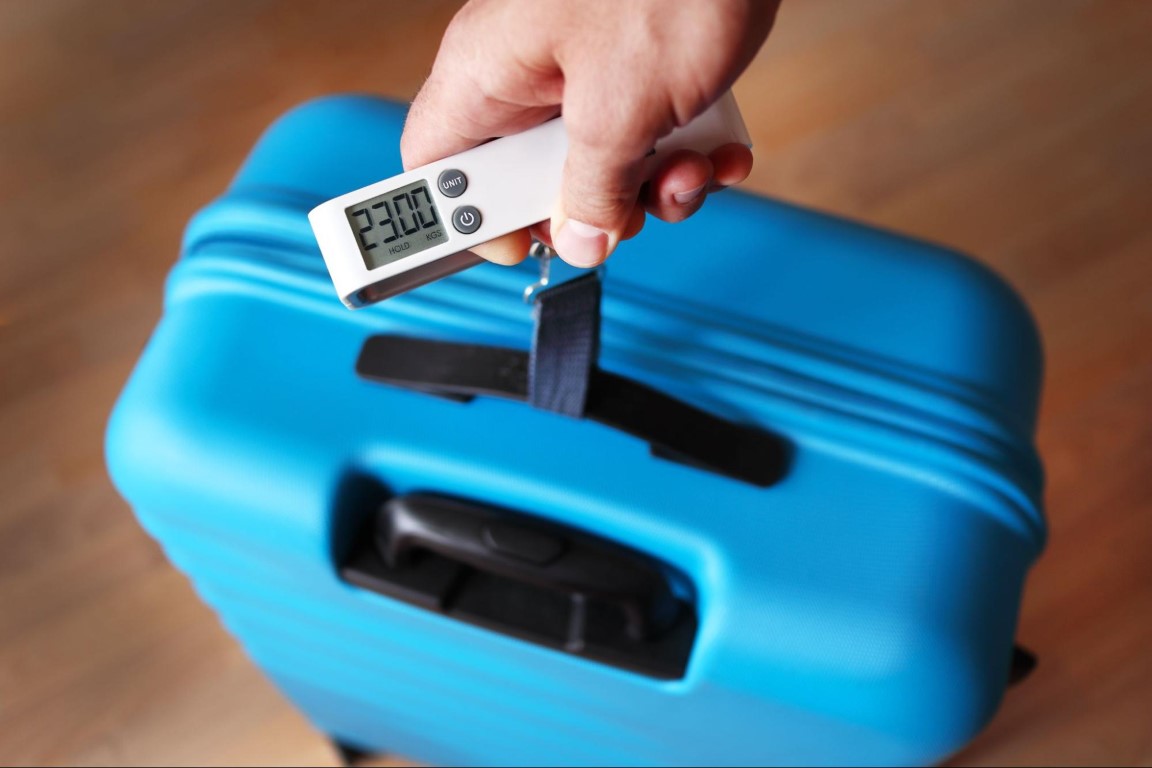
Another useful piece of equipment for professional travellers should be the portable luggage scale. Just a simple handheld model with adequate measuring can help you weigh almost any of your bags and suitcases. These will come in handy if you want to pass through the airport check-ins without having to pay extra for overweight luggage.
24. Use Luggage Tags To Avoid Mismanagement
For those who travel a lot, having an easily identifiable luggage tag will help you locate your baggage in case they are lost during transitions. Always look for durable models to withstand all the tossing and turning.
And at the same time, having adequate visual flair will allow them to stand out from the rest. So, feel free to choose bold colours with unique patterns for your tags.
25. Sleep Better With Masks And Earplugs
Alongside the worst cases of jetlag, simply moving to a new place and a new bed can cause sleep deprivation for many of us. In these cases, it's best to carry your sleep masks and earplugs while travelling.
They'll come in handy when you're troubled by the bright lights or loud noises which prevent you from falling asleep. And sometimes, mobile apps that can generate white noises and soothing sleep sounds are also a good idea.
26. Take Quick Naps Whenever Possible
Another way to cope with your disrupted sleeping schedule during long trips is to take quick naps. Just a short period of 15-20 minutes sleeping on the bus or taxi can alleviate most effects of sleep deprivation and return your mind to its alert and sharpened state.
However, you should not sleep more than 30 minutes since it'll take you into deeper sleep cycles, which aren't meant for napping.
Take advantage of quick naps whenever you can to recharge your body and mind. Then prepare yourself properly for a good night's sleep to get through the jet lag.
Tips: Remember to use the ear mask and ear plugs to have a better sleep. Also, a power nap is by no means a substitute for a good night’s rest. Make sure to book a good place to rest at your destination.
27. Have A Travel First Aid Kit Ready
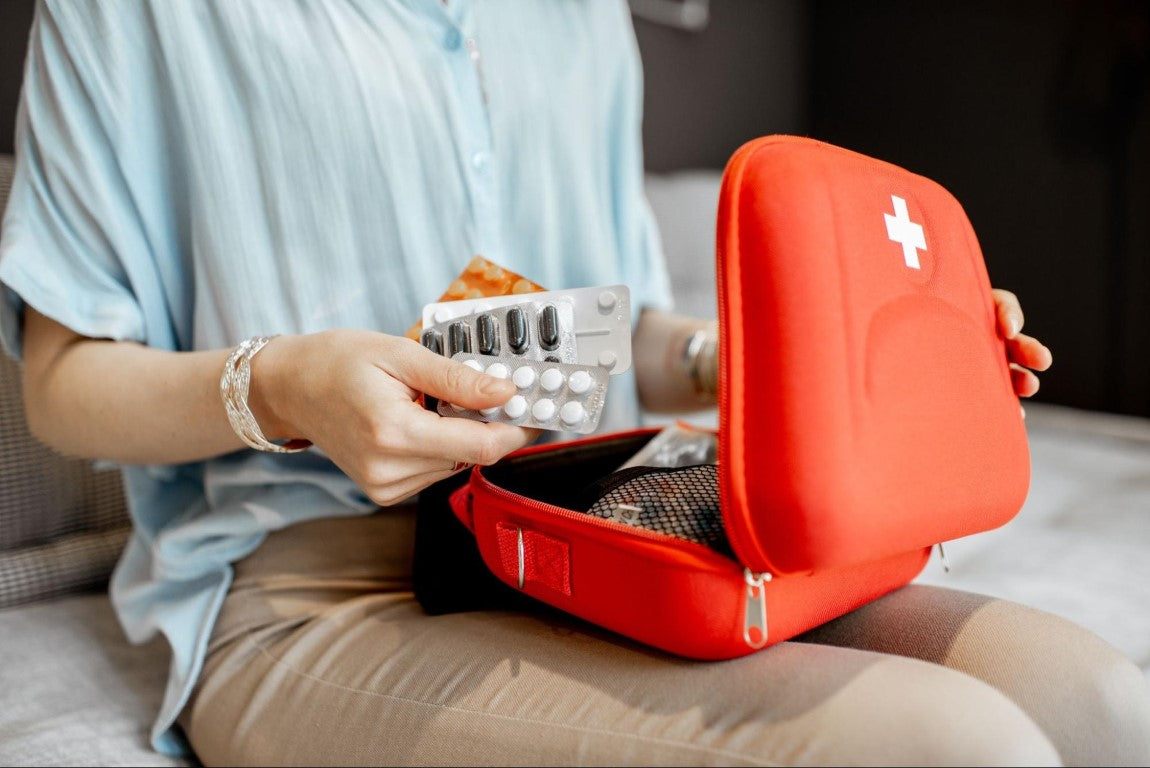
To stay safe and healthy throughout the journeys, we advise our readers to always prepare their first aid kit before the next trip. Starting with:
- A list of medicines that you regularly take and a zip bag for them. Keep each medicine in their original container, and add notes if necessary.
- Over-the-counter pills for relieving fever symptoms include Acetaminophen, Ibuprofen, or Aspirin.
- Bandages and bandage closures to deal with small cuts and minor bleeding.
- Disinfectants for cleaning open wounds and preventing infections.
- Water purification tablets will come in handy if you are concerned with the quality of your drinking water.
These are just common entries for your list. Depending on your personal health and preferences, you can choose to add more items to the kit. Make sure to prepare everything necessary for your health and those of your loved ones.
28. Only Wear Your Most Comfortable Shoes
The number one rule when choosing shoes for travellers is that they should always be most comfortable. And afterwards, you can start considering their certain functionalities and features that you might need along the way.
Since you’ll be doing a lot of walking and even climbing, shoes that aren’t fit will make you feel really uncomfortable.
29. Use A VPN
One of the top tips for travelling is to always have a VPN enabled on your devices, either your laptops or smartphones. A VPN subscription will protect you from online threats and help avoid geo-restrictions.
You can enable data encryptions, hide your IPs, and unblock online services worldwide simply by enabling your VPN services. And most importantly, the service will unlock all your social media networks, no matter which country you’re in.
And finally, a VPN can protect your system from being hacked, which is quite common if you're using any public Wi-Fi network.
30. Always Stay Online With A Portable Wi-Fi Hotspot

To allow your laptop to always be connected, it's highly recommended that you bring a portable Wi-Fi hotspot. Make sure to choose a SIM card from a different Internet provider than the one on your phone.
Different areas will have varied signal reception, so you'll want to have multiple choices. This will ensure the most stable and high-speed Internet connections for your mobile devices.
31. Bring A Book With You
During your trips, you'll often just want to sit down and read something. But using your phones or other smart devices might not be the wisest choice. Instead of being able to stay focused, you'll find yourself getting distracted by all the notifications and updates from apps and social media.
So, a book you find interesting and want to read will be a much better option. It’ll allow you to regain focus and spend your free time most effectively, especially during your extended flights and train rides.
On the other hand, if you’re more into ebooks, then having a tablet or Kindle with your favourite books is also a good option. That way, you can enjoy carrying your entire library of books and reading them whenever you want.
32. Have A Multitool Available
A good multitool is a lifesaver for any traveller, as it provides all the essential tools from a single piece of equipment. Enjoy working with knives, scissors, pliers, screwdrivers, and many other useful tools during your trips instead of having each of them in your bag.
Keep in mind that certain countries will have their own regulations when bringing multitools into the air.
According to the TSA regulations, it’s prohibited to travel with sharp objects in your carry-on bags, with the only exception of scissors less than 4 inches. As a result, you’ll need to put your multitool in the checked bags.
If you’re planning to carry knives into the plane then you might want to do some research to avoid breaking the laws.
33. Bring Along A Portable Sewing Kit
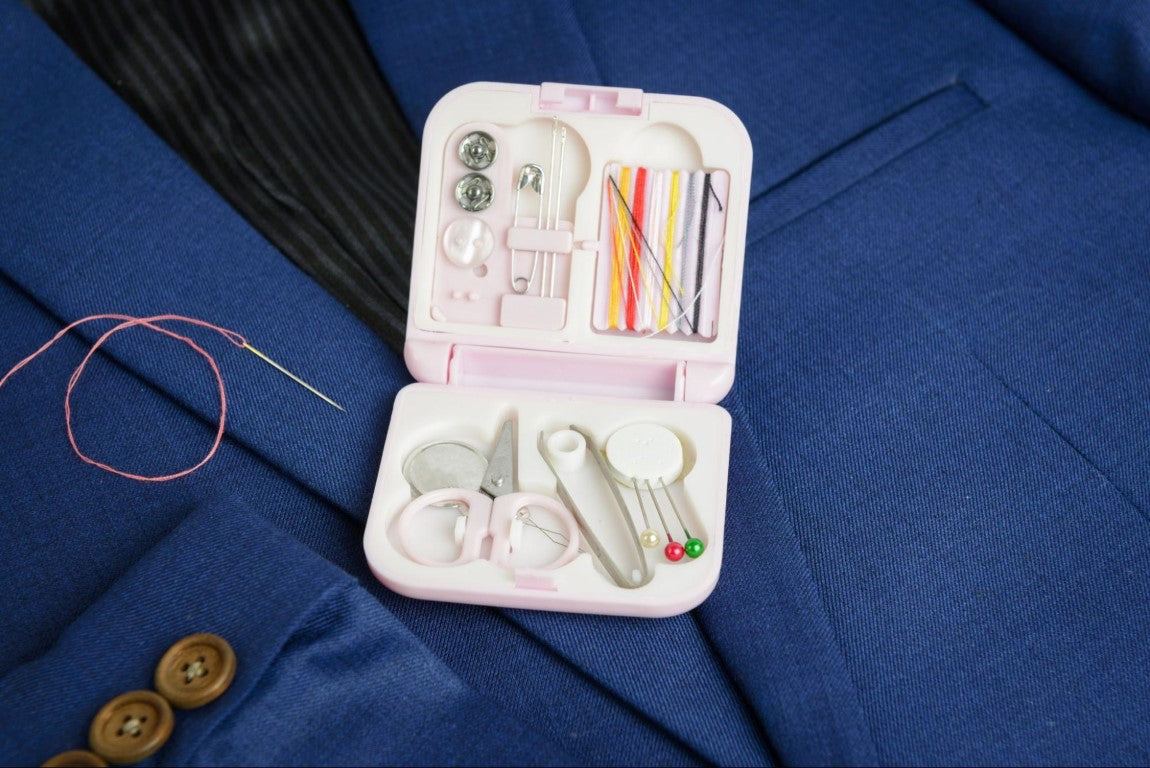
While travelling, you’ll never know when your clothes are getting damaged, so having a small sewing kit in your backpack will certainly help. You can use it to stitch those tears on your pants, replace a lost button, or discover many interesting utilities.
34. Keep A Small Mirror With You
Female travellers will find this travel tip most helpful. A small mirror in your bag can come in handy in many cases; feel free to use it to check on your looks and apply makeup if necessary.
Also, if you just finished your meal, you might want to check if any foods are stuck in your teeth. A simple handheld mirror won't take up much space in your bag and will be useful in many circumstances.
35. Prepare A Portable Fan When Visiting The Tropical
With these countries' hot and humid conditions, it's always nice to have a portable fan to cool you down and relax. Alongside sunscreens, it is one of the essential pieces of equipment if you plan on moving a lot.
Always have a small and lightweight fan in your pocket, or you can wear it with a strap around your neck for instant breezes on the go. This is definitely a great tip that we’ve learned through our travels.
36. Make Use Of The Best Travel Apps
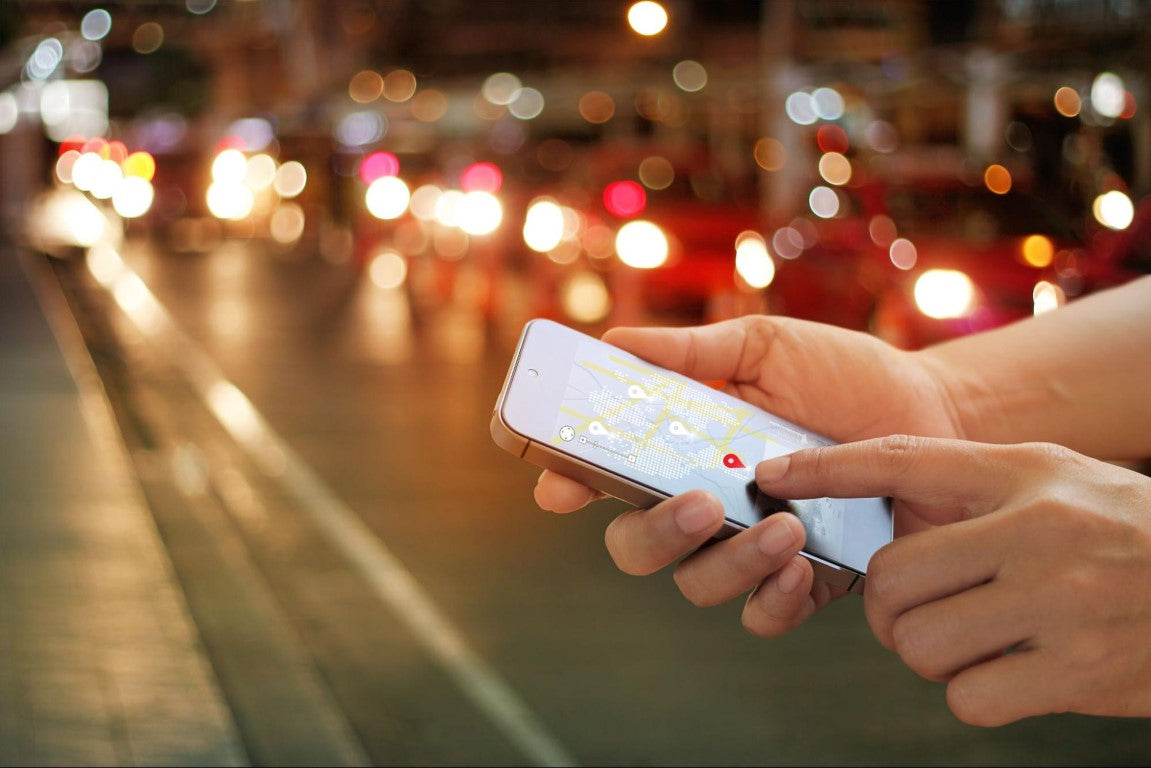
If you can’t decide how you would want to travel, then you will want to use these convenient travel apps. Instead of researching and making hard decisions, the apps will provide you with solutions.
And by featuring dozens of useful implementations, they will make your trips much more enjoyable. Take a look at our suggestions as we discover useful travel apps to have on your smart devices:
These are only a few common apps in your starter pack, and you can always look for more travel tips and reviews to improve your travel experiences. Great names such as Roadtrippers, TripIt, Airbnb, Booking.com, Hotwire, Orbitz, Yelp, and many others, are certainly worth considering.
37. Always Start With A Walk
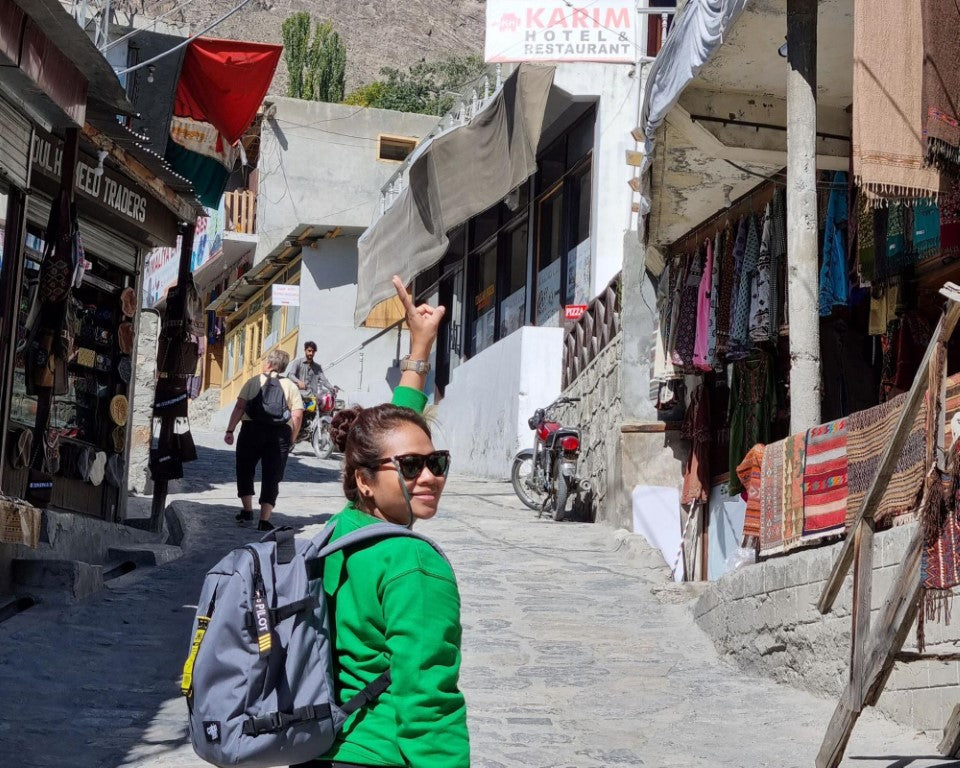
A simple walking tour in a new city will quickly introduce you to the local lifestyles and provide many unique experiences. Find yourself stumbling upon local spots that can’t be found on social media. Also, it’s a healthy activity and will give you time to think about your next plans. And sometimes, the best experiences on your trip come from a journey on foot.
38. Use Travel Rewards Credit Cards
In case you didn’t know, this type of card exists to reward its users whenever they're on their way. So, if you love to travel and will spend most of your time moving from place to place, then this card is undoubtedly the perfect choice.
It’ll reward you with points and miles for each of your purchases, which can be redeemed for flight tickets, hotel stays, transportation, and many others. So, make sure to always check all the credit card company’s offers and their additional benefits for travelling.
39. Get Your Flights At Reasonable Prices
Cheap flights mean you can save your money travelling while still enjoying all the standard services. So make sure to always look up online for ways to get them:
- Booking in advance: a lot of airlines will provide their customers with better prices if you book your tickets early.
- Use price comparison websites: if you want the best price for travelling to a foreign country, then you’ll need to compare different sellers.
- Consider budget airlines: when travelling on a budget, it’s highly recommended to look for tickets from affordable airlines. Also, sign up for their newsletters, so you can receive exclusive offers.
40. Research The Local Currency
When travelling to a foreign country, make sure to research the local currency, so you can plan your budget.
Depending on their purchase power and current exchange rates, you can decide how much money you want to exchange.
Always use these services at banks and official exchange spots. And try to avoid shady exchanges as much as possible.
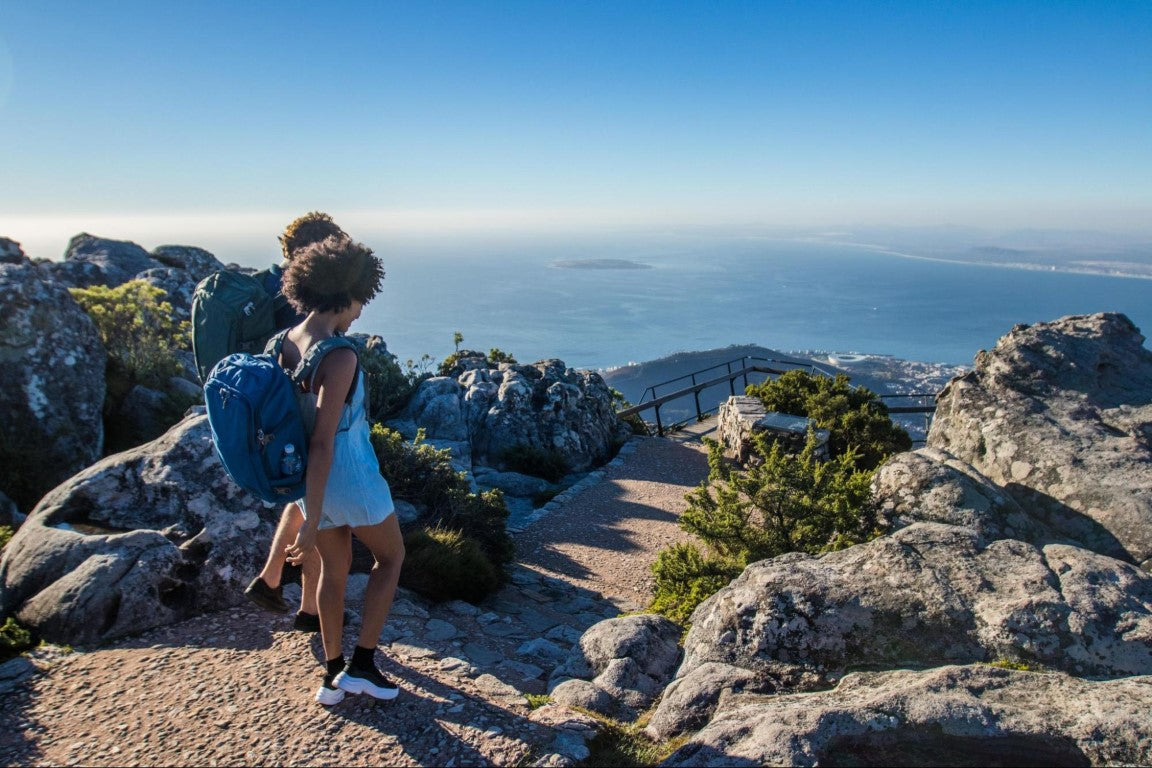
FAQ
What Are The Do And Don't When Travelling?
When travelling to a new place or country, always remember important safety vacation tips for an enjoyable experience. Here are a few of our do’s and don'ts for beginners that you might want to take notes of:
DOs
- Do try to be friendly with whoever you meet along the way.
- Do keep all your valuables inside a personal safe when staying at local motels or hotels.
- Do pack lightly for the day. Keep all your stuff safely back at the hotel, and only bring what you need in the backpack. Remember, you'll need to make room for souvenirs.
- Do try to stay hydrated throughout the day. And the best way to do that is to carry around your bottle that was prefilled with fresh, clean water.
- Do consider the best travel tip from experts before and during your trips.
DON’Ts
What Are The Three Main Types Of Travel?
According to Henley College’s report on Travel and Tourism, there are three main types of travel, which were identified as:
Where Should A First-Time Traveller Go?
As beginners, you'll find it quite overwhelming when choosing the first destination for your journey. Depending on your preferences, we’ll have different recommendations for any of you first-time travellers.
If you only plan on travelling domestically, we suggest you research some of the best locations in your country. Pick a place you're most interested in and start planning your trip. Or alternatively, you can always enjoy a local staycation, where you’ll explore your town, city, and its surrounding as if you were a new visitor.
And of course, if you wish to go to another country, then we already have a few great destinations for you. Thailand, Vietnam, Japan, Italy, France, Spain, New Zealand, Canada, and many other countries can easily make it into your list with their own beauties and attractions. Choose one that matches your preferences and current budgets, then start having your plans realised.
The Best Travel Tips Will Always Help
For first-time travellers, we highly recommend checking our best travel tips so you can enjoy a safe and memorable experience. These are all well-researched by our travel experts and will offer valuable knowledge to aid you in your trips.
Have you ever used any of these tips? Do you find them helpful? If so, drop a comment below to let us know about your experience, we love a tricks a two that can change our travel life altogether (who doesnt?). And don’t forget to share these tricks with your friends so that they can benefit from them, too!
Kim Vương














This is exactly what I needed! First-time travel can feel overwhelming, but this guide makes it so much easier!
Which compression bags do you recommend? I want to use use my carry on bag and personal item for 13 days in Europe. 7 of those 13 days will be on a riverboat cruise. I have confirmed my carry on fits within the airline’s rules. Please help. Usually I just use packing cubes but I am concerned about the weight limit and small bag size on Icelandair. Thank you!
Great advice! Having solid travel tips can make all the difference for first-time travelers. It’s wonderful that your insights are well-researched—this will definitely help them feel more confident and prepared for their adventures. Looking forward to seeing what valuable knowledge you’ve compiled!
I believe traveling unplanned is the best way to treasure memories.
Leave a comment